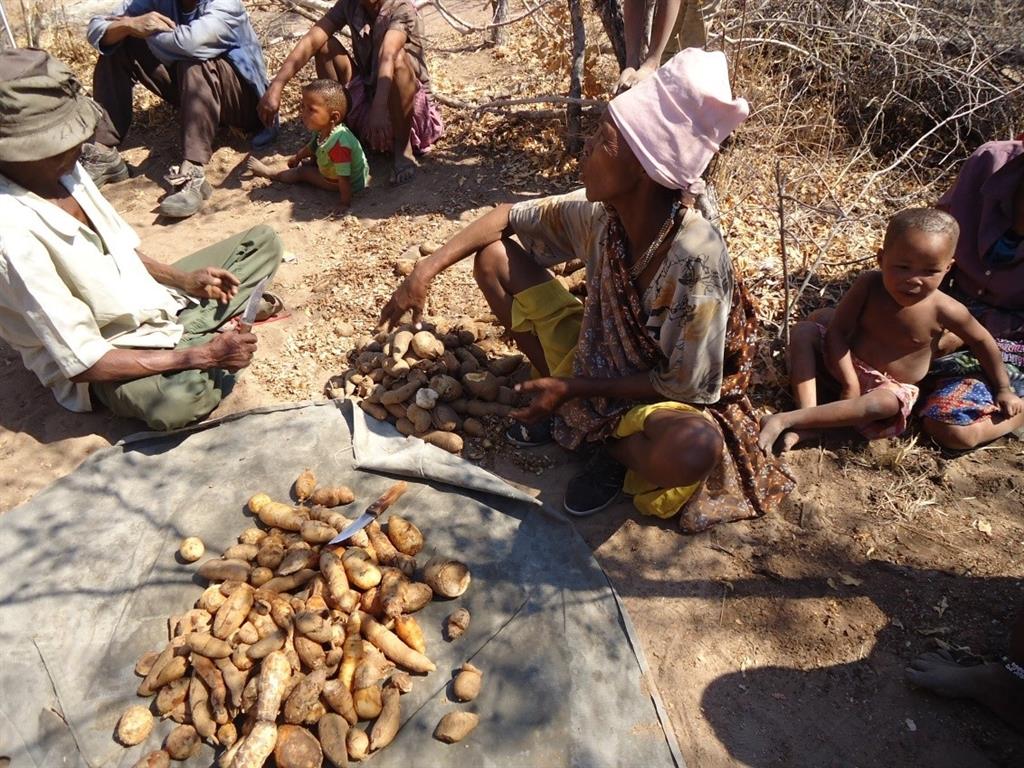Namibia largest supplier of devil’s claw
ELLANIE SMIT
WINDHOEK
Namibia is the largest supplier of devil’s claw in the world. The plant is protected plant and those who harvest and sell it require permits.
Extracts from the roots of the plant act as an anti-inflammatory and, because of its healing properties, are widely used in Europe and elsewhere in the treatment of rheumatism and arthritis.
In both the Nyae Nyae and N?a Jaqna conservancies, the sustainable harvesting and sale of devil’s claw are vital to income generation for their members and conservancy management.
For the period 2020/2021, just over 1 000 harvesters earned a direct income of about N$4 million. Devil’s claw harvesting also makes a considerable contribution to income opportunities for women, who make up just over 50% of the registered harvesters.
According to the Nyae Nyae Development Foundation, a large portion of income for both conservancies is derived from wildlife and tourist-related activities.
However, due to the Covid-19 pandemic, this has been significantly reduced, making income from other sources increasingly important.
Income from devil’s claw allows the conservancy members to pay for basic needs, which include food, transport, clothes, healthcare and schooling.
The support provided by the Nyae Nyae Development Foundation enables conservancy members to generate cash income from the sustainable harvesting of devil’s claw.
Specifically, support has been provided in the areas of contract negotiations, training and monitoring.
Impact assessments
The foundation said the assistance provided focuses on empowering individual harvesters to produce a top-quality product, while ensuring that sustainable harvesting methods are used.
“Each year, post-harvest impact assessments are carried out by community-based natural resource rangers in selected harvesting areas to determine compliance with sustainable harvesting methods.”
The foundation further noted that devil’s claw harvesting in the Nyae Nyae and N?a Jaqna conservancies is essential for wildlife conservation in two ways.
“Firstly, diversified livelihood opportunities and increased ability to cater for basic needs are known to contribute to the conservation of biodiversity, and secondly, devil’s claw harvesters and rangers spend more time in areas that are not easily monitored, and are therefore more likely to detect irregularities.”
The devil’s claw from both conservancies is certified organic, which ensures that the product is fully traceable, sustainably harvested and processed according to internationally recognised standards.
Financial support from the International Union for Conservation of Nature Save Our Species African Wildlife Initiative, co-funded by the European Union, contributed significantly to the achievement of these results, the foundation said.
WINDHOEK
Namibia is the largest supplier of devil’s claw in the world. The plant is protected plant and those who harvest and sell it require permits.
Extracts from the roots of the plant act as an anti-inflammatory and, because of its healing properties, are widely used in Europe and elsewhere in the treatment of rheumatism and arthritis.
In both the Nyae Nyae and N?a Jaqna conservancies, the sustainable harvesting and sale of devil’s claw are vital to income generation for their members and conservancy management.
For the period 2020/2021, just over 1 000 harvesters earned a direct income of about N$4 million. Devil’s claw harvesting also makes a considerable contribution to income opportunities for women, who make up just over 50% of the registered harvesters.
According to the Nyae Nyae Development Foundation, a large portion of income for both conservancies is derived from wildlife and tourist-related activities.
However, due to the Covid-19 pandemic, this has been significantly reduced, making income from other sources increasingly important.
Income from devil’s claw allows the conservancy members to pay for basic needs, which include food, transport, clothes, healthcare and schooling.
The support provided by the Nyae Nyae Development Foundation enables conservancy members to generate cash income from the sustainable harvesting of devil’s claw.
Specifically, support has been provided in the areas of contract negotiations, training and monitoring.
Impact assessments
The foundation said the assistance provided focuses on empowering individual harvesters to produce a top-quality product, while ensuring that sustainable harvesting methods are used.
“Each year, post-harvest impact assessments are carried out by community-based natural resource rangers in selected harvesting areas to determine compliance with sustainable harvesting methods.”
The foundation further noted that devil’s claw harvesting in the Nyae Nyae and N?a Jaqna conservancies is essential for wildlife conservation in two ways.
“Firstly, diversified livelihood opportunities and increased ability to cater for basic needs are known to contribute to the conservation of biodiversity, and secondly, devil’s claw harvesters and rangers spend more time in areas that are not easily monitored, and are therefore more likely to detect irregularities.”
The devil’s claw from both conservancies is certified organic, which ensures that the product is fully traceable, sustainably harvested and processed according to internationally recognised standards.
Financial support from the International Union for Conservation of Nature Save Our Species African Wildlife Initiative, co-funded by the European Union, contributed significantly to the achievement of these results, the foundation said.





Comments
Namibian Sun
No comments have been left on this article